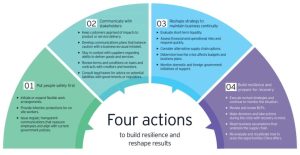Which Is Better, FHA Or Ordinary Loan?

For many first-time home buyers with limited advances, both traditional loans and FHA loans can help them buy new homes. Although both can help solve problems, it is important to know which is better than the other and what is the best. What do you like best?
FHA and traditional loans may be better, but it depends on the needs, status and preferences of the borrower. It is quite difficult to apply for traditional loans, but if you meet the requirements, its loan limit will be higher. In this case, FHA loan seems to be the best choice when your credit score is low. Although you may not be eligible for an ordinary loan, you cannot give up; you have the choice to help buy the house you dream of. Because the loan is a loan from the Federal Housing Administration(FHA), there is almost no limit to the loans provided by the borrower approved by the Federal Housing Administration.
Why FHA loan is the best
• 500 credits available
• A maximum of 50% debt to income ratio is allowed
• All residences, such as mobile residences, multifamily residences, apartments, single residences, are eligible for loans.
• The net interest rate of the loan is very low.
• The loan has adjustable and fixed rate loan options.
Disadvantages of loans
FHA loan is the best, but it also has disadvantages.
• You should use the real estate as your primary address
• You need to pay for lease insurance.
• Sometimes the interest rate may be higher
Guarantee insurance requirements
To get a mortgage, you need to pay a guarantee premium. The borrower needs such insurance to compensate for the risk of lending under favorable conditions.
• You must pay a one-time mortgage insurance premium proportional to the first loan.
• Another requirement is to pay insurance guaranteed loans annually.
conclusion
The purpose of the loan is to help people in the financial crisis, but they still need money to buy basic goods such as housing. Both traditional loans and FHA loans are helpful, but FHA loans are often better because of more minor requirements.









